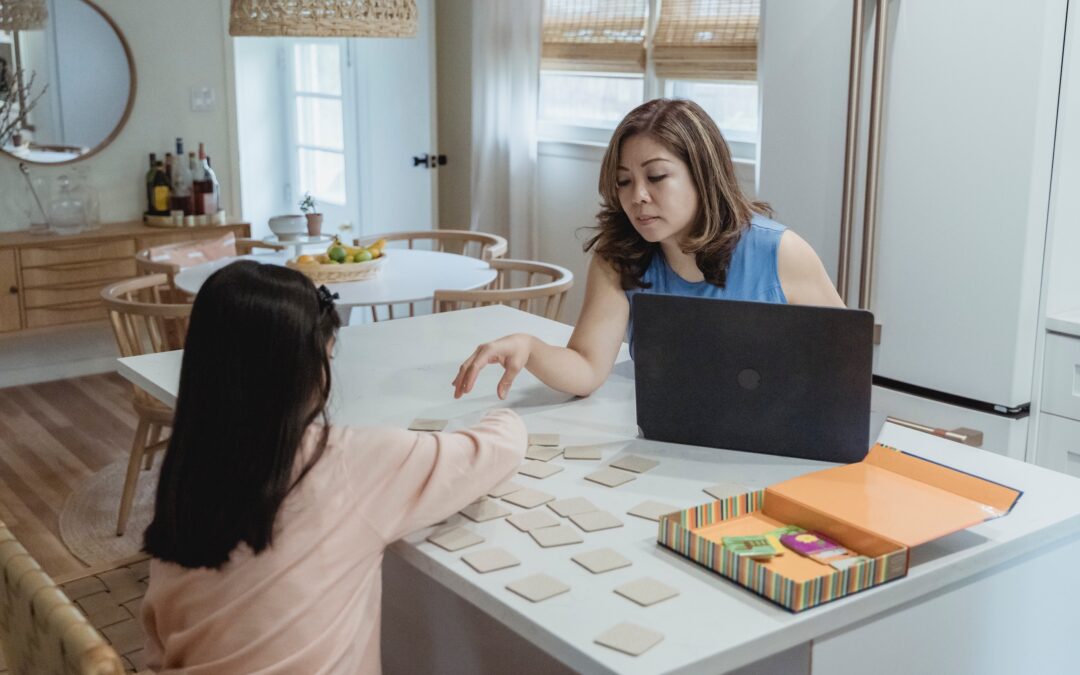Busy working parents often face numerous challenges in managing their time and balancing their responsibilities. Even the most capable people can feel exhausted by the combined challenges of parenting, work, and modern-day life.
For working parents, it can be incredibly difficult not to push through and ignore the consequences on their own health and well-being, inadvertently becoming that reactive parent nobody wants to be.
I’ve worked with many private clients who often approach me feeling a sense of exhaustion and guilt as if they are barely managing to keep all the pieces together. And despite their desire for change, they often feel powerless to make it happen.
What I see is that a reactive, rushed way of living has become normal for them. While it may be their reality, it’s also the very thing that stops them from taking a step back and looking at what could be changed to improve things.
Working parents shouldn’t shoulder the blame, as it’s an easy trap to find oneself in. Nevertheless, by acquiring new skills and adopting simple habits, they can break free of the cycle and create a significant positive change.
Over the course of the month, I’ll be sharing the small, impactful changes that I’ve seen make the most difference for my clients who are working parents. These strategies and tips will help you reduce stress, improve personal well-being, manage your time and energy more effectively, and enhance family dynamics as a whole.
In this post we’re looking at time and energy management:
Share Calendars: Consider sharing your online calendar with your partner to ensure both of you are aware of each other’s commitments and can stay on the same page. If your children are teenagers and have their own online calendars, encourage them to do the same. If you have a nanny, sharing a calendar can also be very helpful.
Or create a separate family calendar for shared activities, ideally synced with everyone’s individual calendars, which can streamline coordination. Use colour-coded categories for easy identification and set reminders to ensure everyone stays informed about upcoming events.
Weekly Catchups: Designate a specific time each week for a family catch-up. Whether it’s just you and your partner or the entire family, having a dedicated time to discuss schedules and plan ahead can greatly reduce stress.
Rather than relying on quick catchups each morning, which can often be rushed and lead to forgotten plans, a structured weekly catch-up allows for thorough planning. Share responsibilities, discuss upcoming events, and ensure everyone is on the same page. Clients who implemented this practice reported significantly less stress and smoother daily routines. I suggest doing this over the weekend so that everyone is ready for the week ahead.
Consolidate into One Master Schedule: Instead of maintaining your own separate calendars for work and personal commitments, try consolidating everything into one schedule. This approach allows for better time management and reduces the chances of overlooking important events.
If maintaining a single calendar is not feasible, aim to sync one calendar with the other and ensure personal entries are set to private if using a work calendar to maintain privacy.
Create a Single To-Do List: Similarly, it’s beneficial to consolidate all your tasks and to-dos into one list. While some people prefer multiple lists or various task management methods, having everything in one place reduces the likelihood of missing something important and it helps you think about everything you have to do as a whole.
Consider using a single piece of paper, a notepad, or an online productivity tool to capture your tasks. You can categorise tasks as “work” or “personal” while keeping both lists in the same place. I also recommend using a colour-coding system to prioritise tasks effectively.
Plan in Advance: Setting aside time to plan your schedule and to-do list in advance is one of the best ways to cultivate a proactive state of mind. I suggest planning your schedule for the next day the night before, allowing you to start each day feeling in control of everything with a clear plan. On Fridays, plan for the upcoming Monday in detail, and create a loose outline of the rest of the week.
Doing this at the end of your workday serves as a signal to wrap up your tasks and allows you to fully switch off for the evening. Many clients have reported that planning the night before, as well as on Fridays for the upcoming week, has helped them sleep better. They feel more in control of the next day and can truly enjoy their weekends, knowing that Monday and the upcoming week are already sorted.
Implementing these strategies and habits can help you regain control, reduce your stress levels, and accomplish more in your daily life. They also act as anchors, guiding you back on track whenever you feel overwhelmed or off-balance.
While you may already practice some of these strategies, many people overlook their importance, usually leading to a reactive state of living.
Once you establish these as habits, you’ll realise the significant difference they make, not just in reducing stress but also in your overall productivity and most importantly how they help you feel more present.
As always, remember it’s best to start with one strategy, master it, and then gradually incorporate others. Attempting too many changes at once can become overwhelming, making it harder to develop sustainable habits.
If you resonate with the feelings of exhaustion, guilt and living in a reactive state and want to make some changes but feel that you can’t do it alone reach out and get in touch for a complimentary consultation.
Kate x


